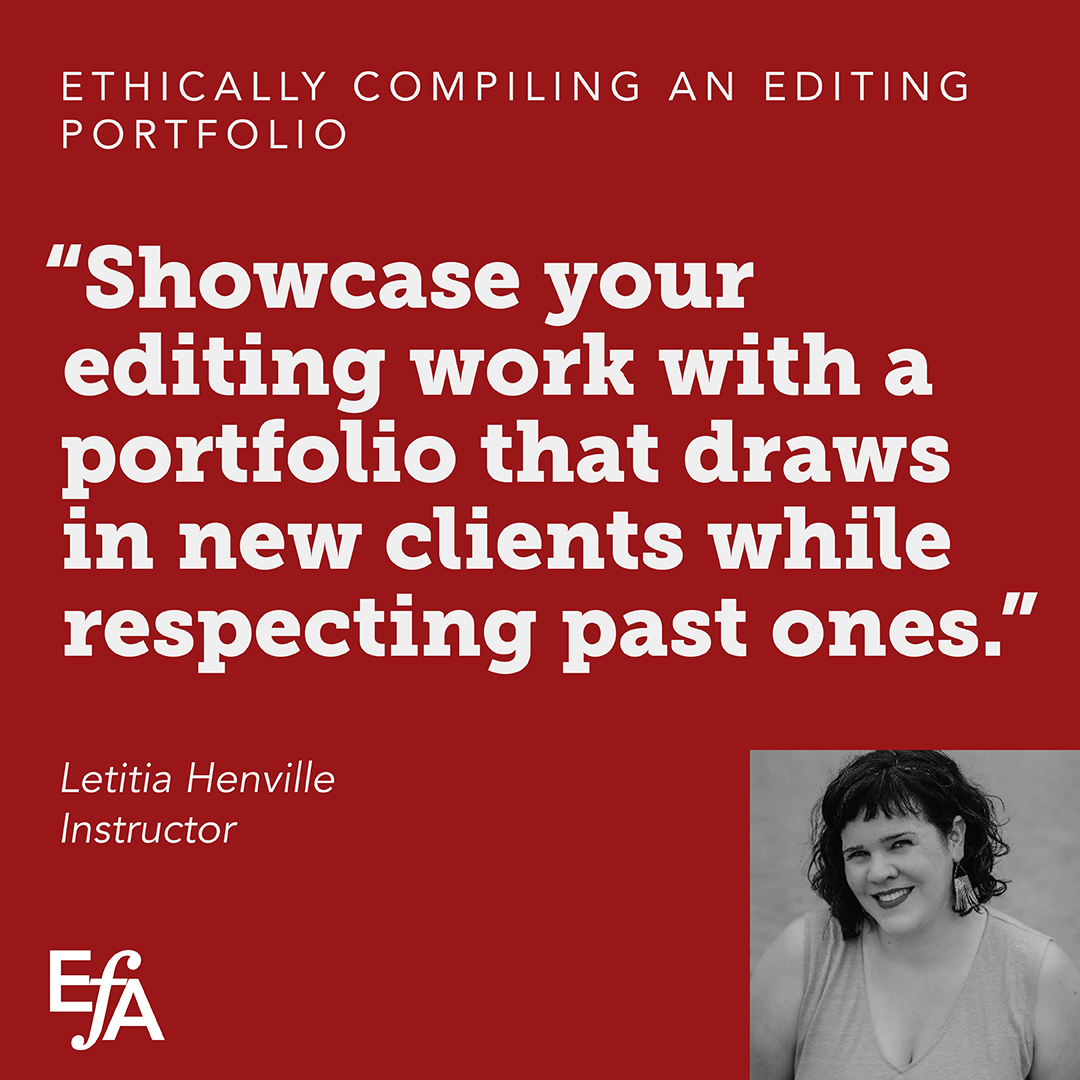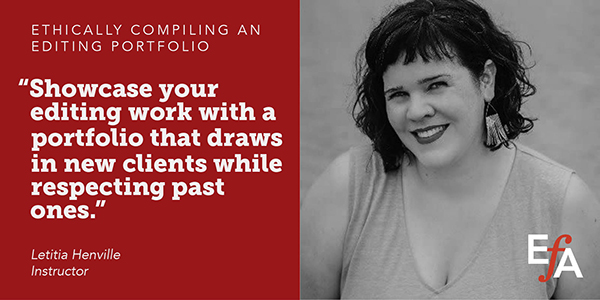Description
All webinar times are in Eastern Time. For more information on how EFA webinars are conducted, please see this page.
Editors work in quiet confidence. Our job is to help writers to speak with clarity, accuracy, and sometimes even flair. In so doing, our own voices are silent, and our perspectives unheard. The best copyedits are the ones a reader can’t see.
Because of the editor’s invisibility, putting together online portfolios of editing work can be challenging, as we may feel uncomfortable revealing a client’s pre-edited work in order to show what a difference we made. Yet by collecting curated examples of our work, online portfolios provide essential evidence to support the claims we make about our editing skillsets.
In this webinar, we’ll discuss how to make a good online portfolio of work—one that showcases your efficacy as an editor while respecting your clients’ confidentiality. Good online portfolios help our clients to understand our work, and enable us to observe and reflect on our own often-invisible practice. The benefits they bring in helping our websites to move up the Google ranks are simply a bonus; the real wins are for our credibility, both as individual editors and as members of a profession.
By considering examples from real freelancers’ websites, you’ll learn the four core elements of a strong online portfolio, and consider six additional elements you might wish to include in your own portfolio.
This webinar is most appropriate for editors of all kinds—including copyeditors, proofreaders, indexers, and stylistic, substantial, and developmental editors—with an intermediate or advanced level of experience in editing. Technical resources will be provided and content marketing strategies will be integrated in our discussion, but this is not a web design webinar.
Letitia Henville (she/her) is a book nerd, bad swimmer, and the author of the monthly academic writing advice column “Ask Dr. Editor.” She specializes in editing for faculty members in the health sciences, education, social sciences, and humanities, with a special focus on grant applications and tenure and promotion dossiers.



